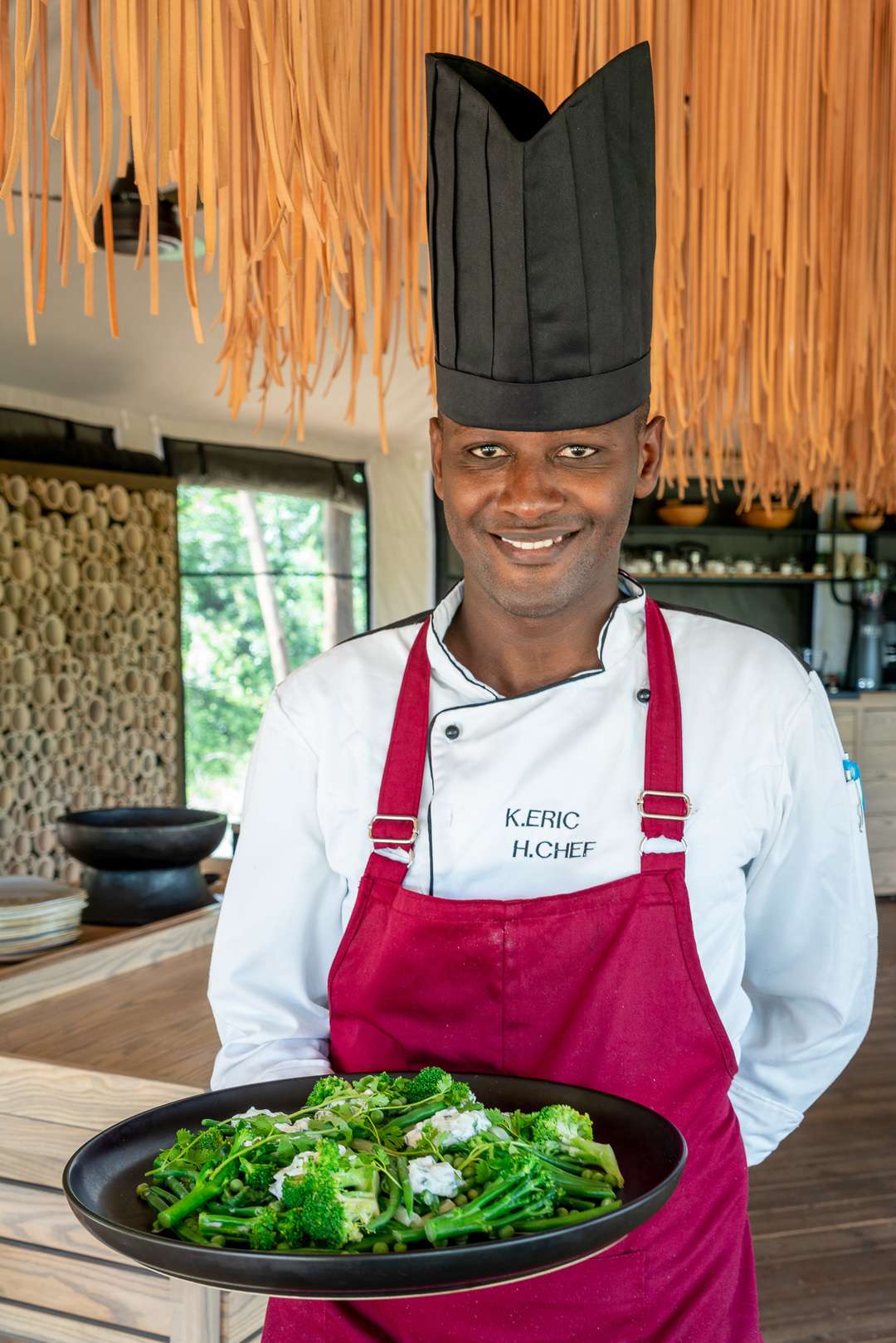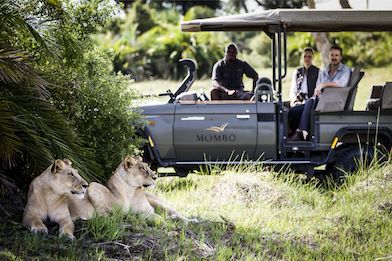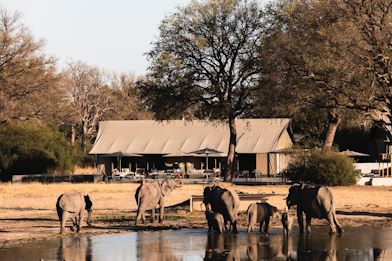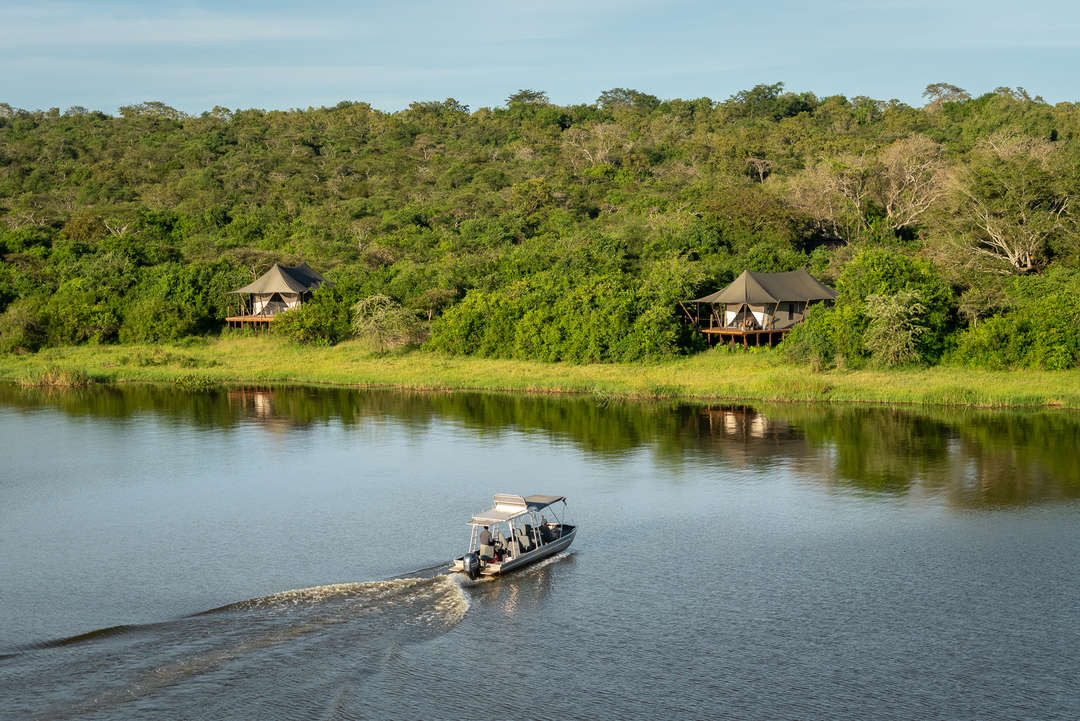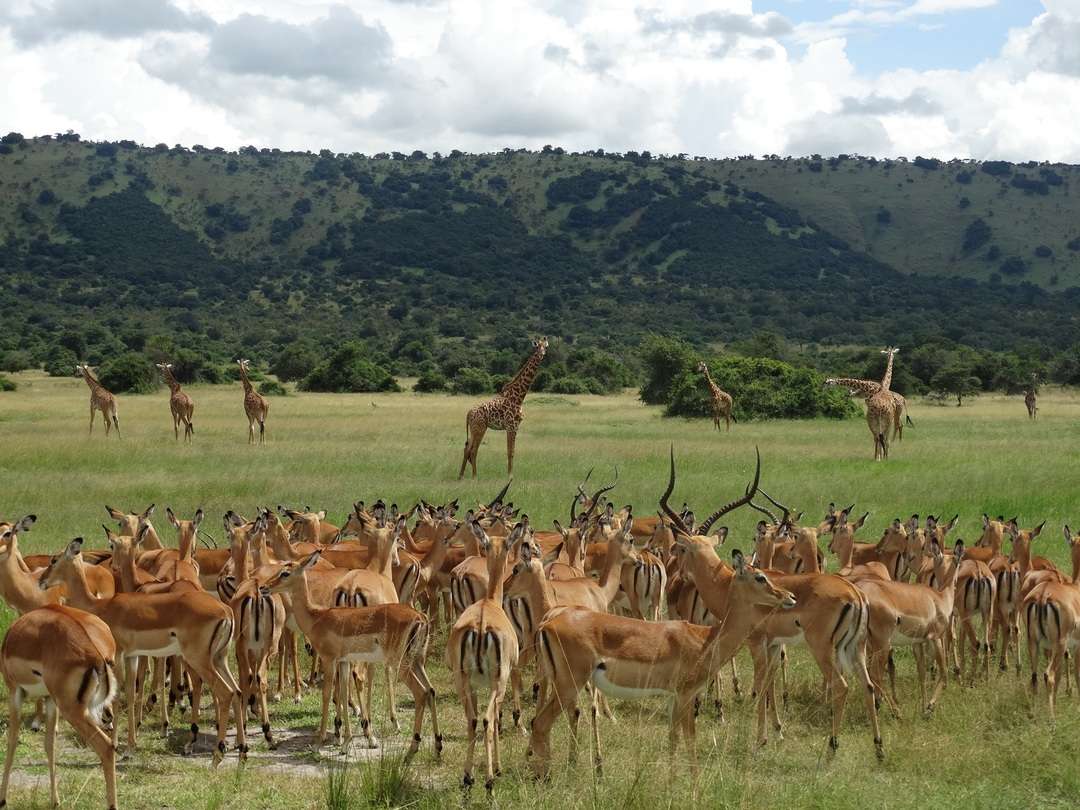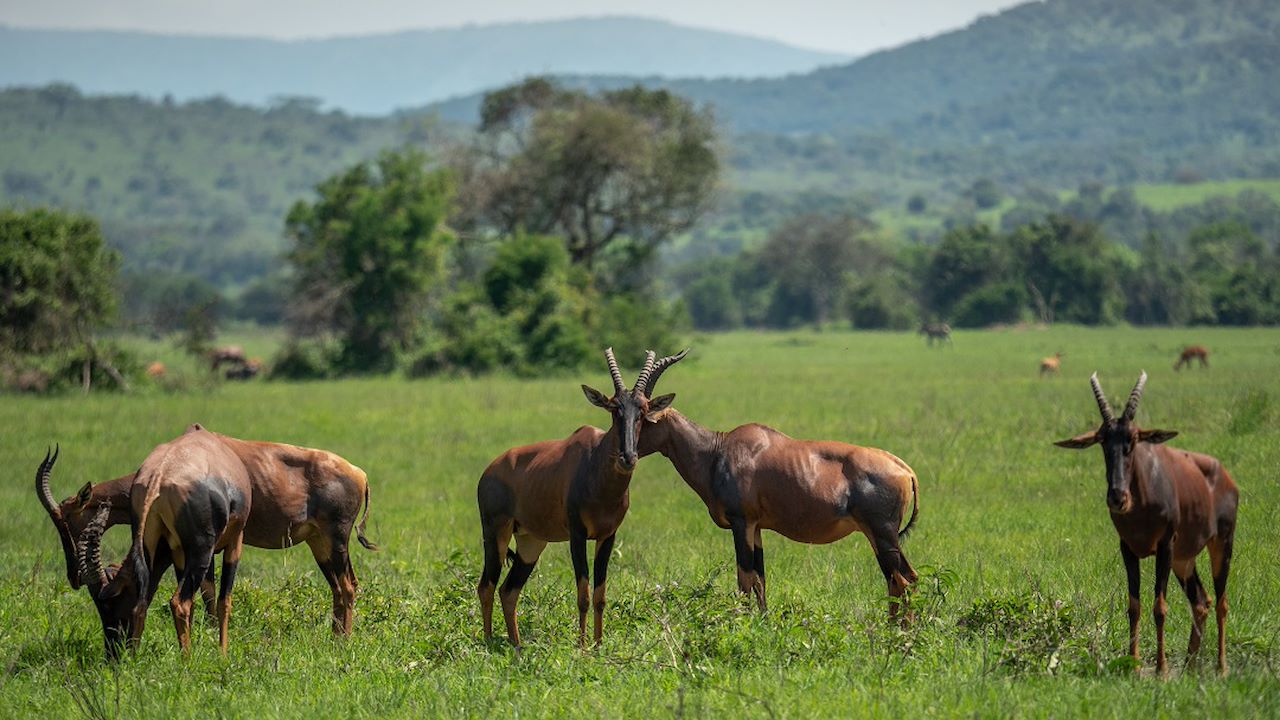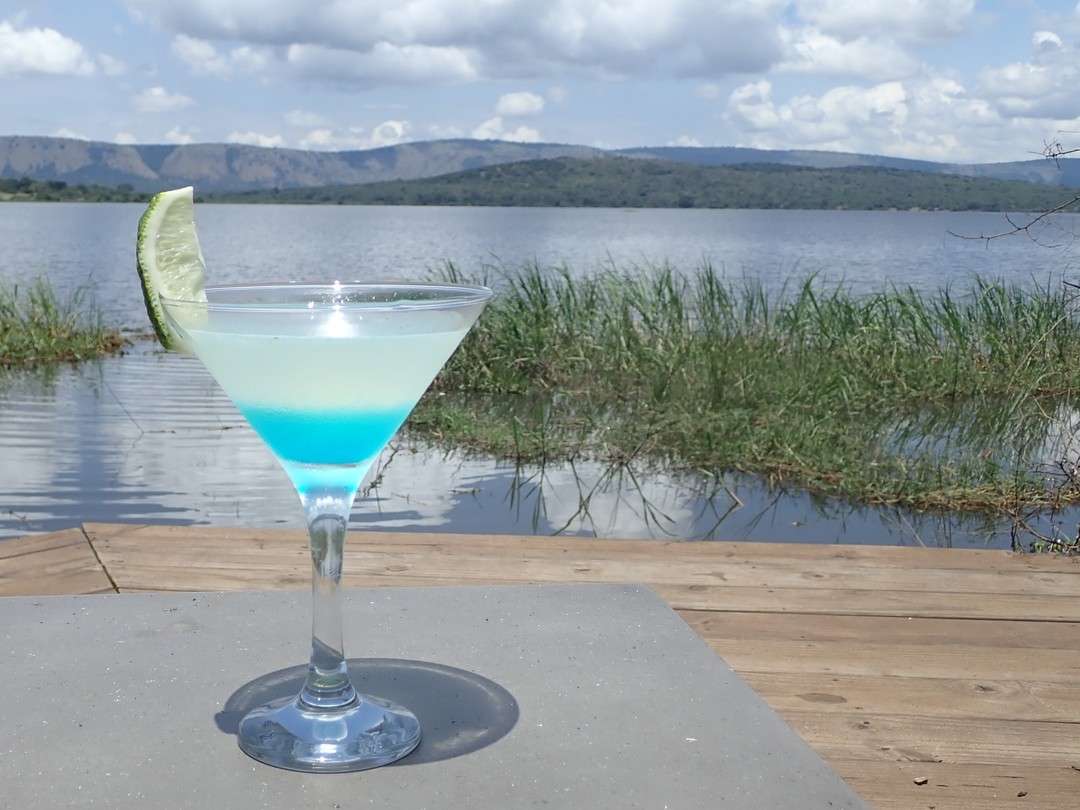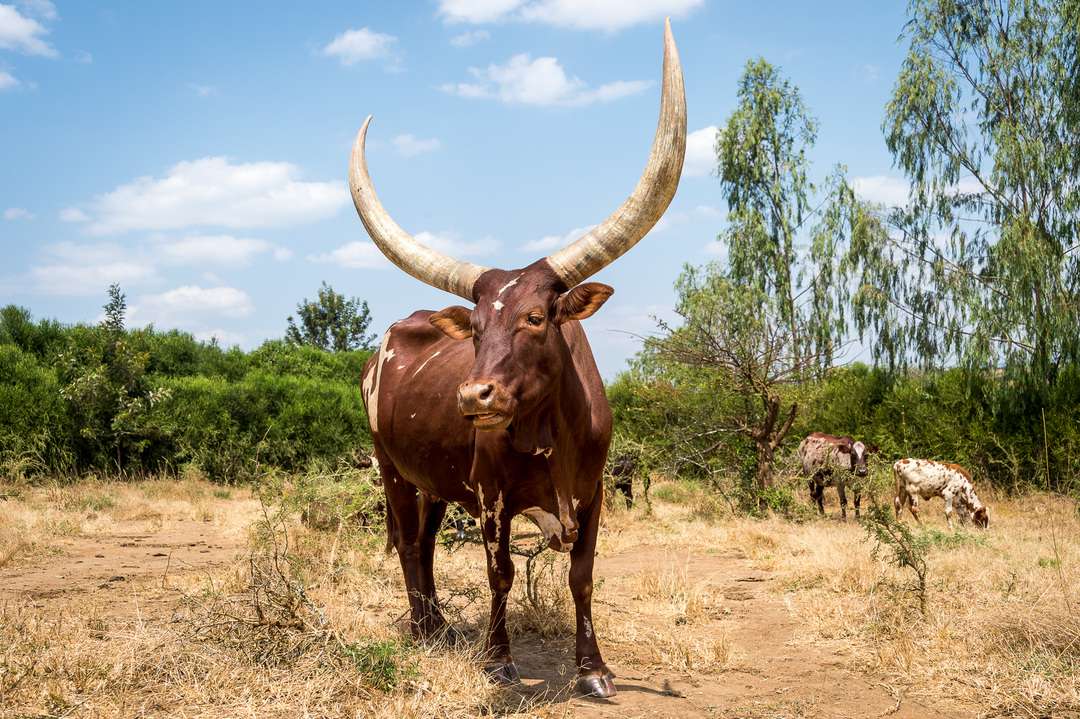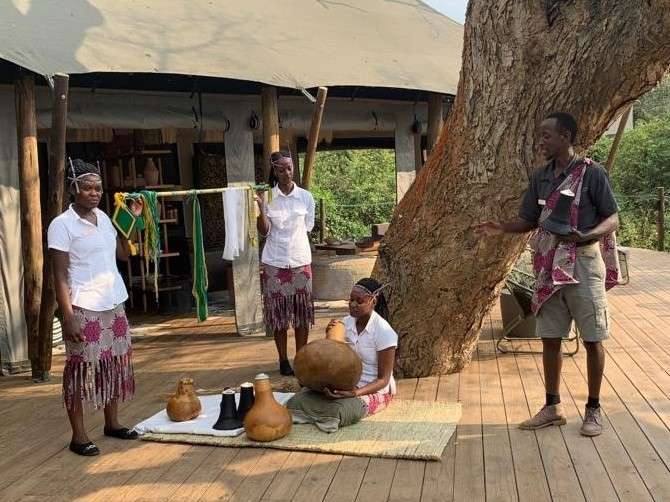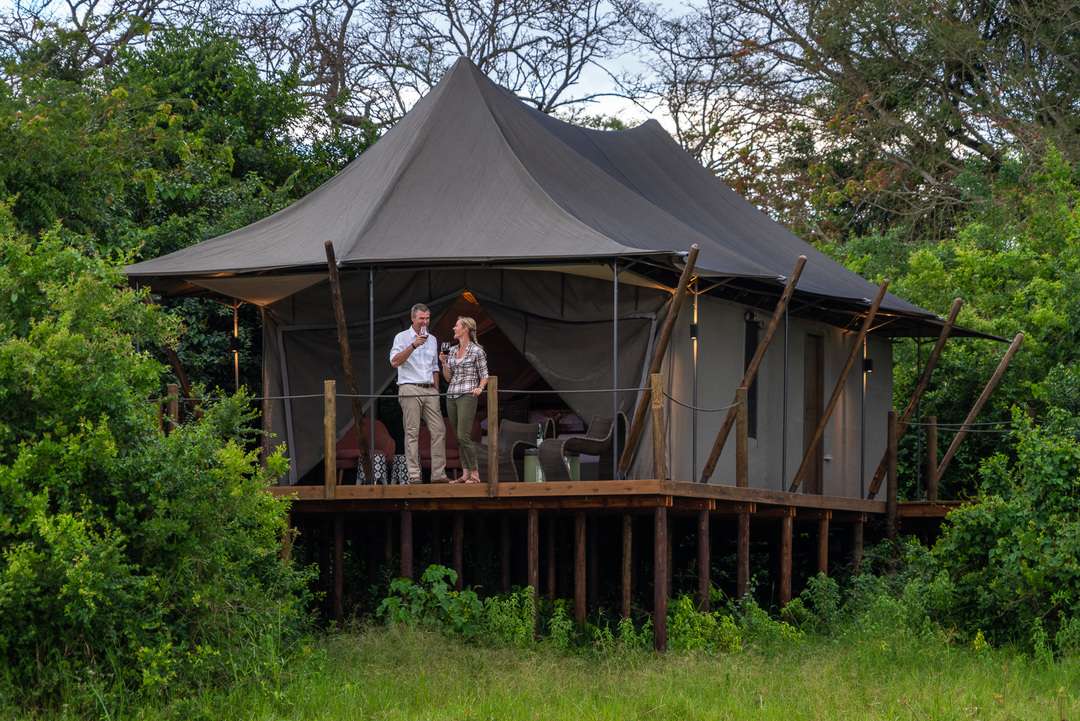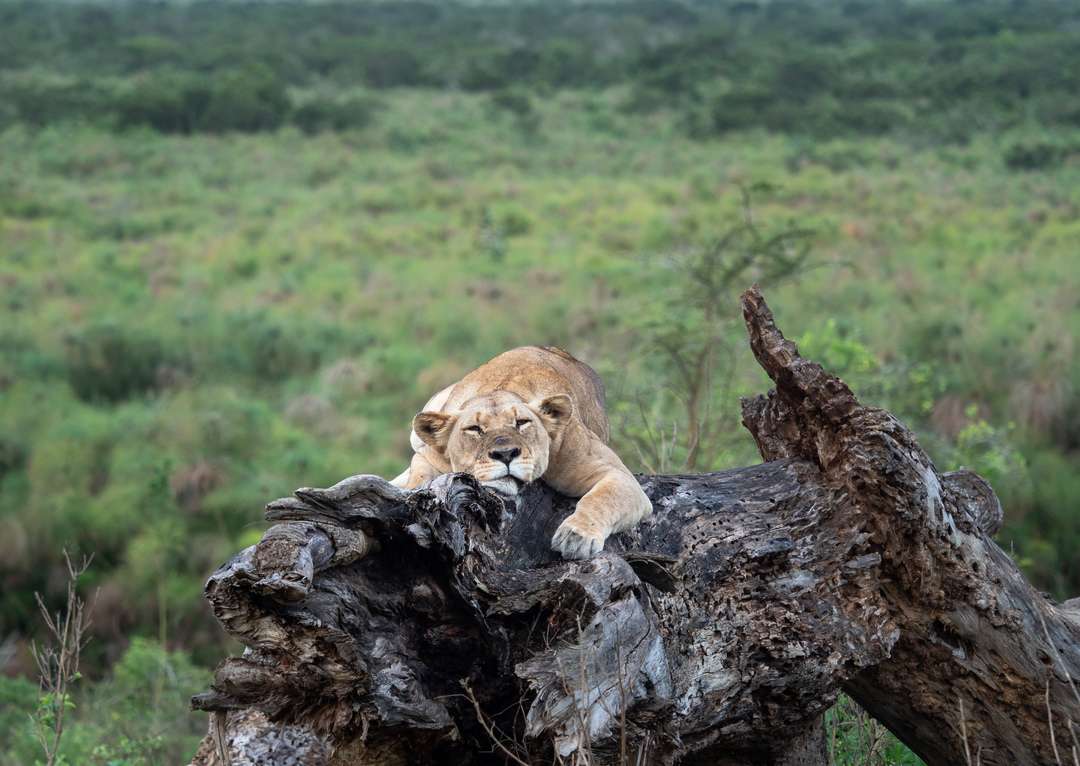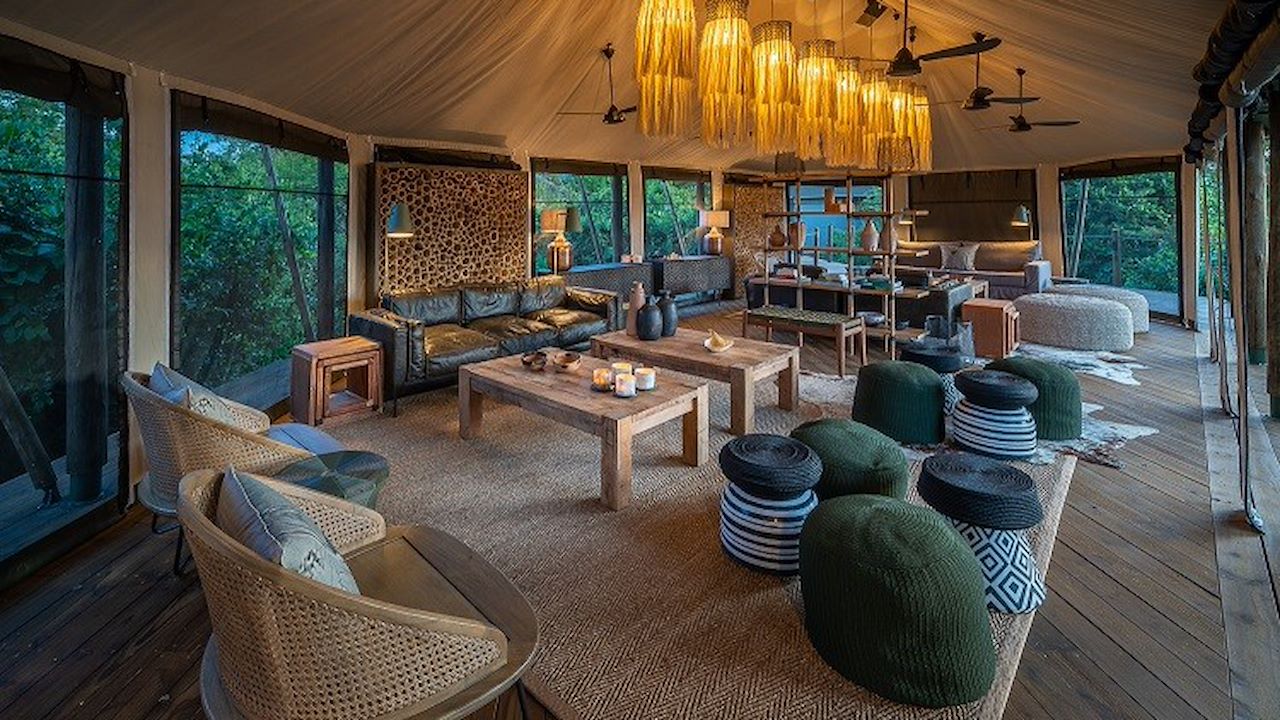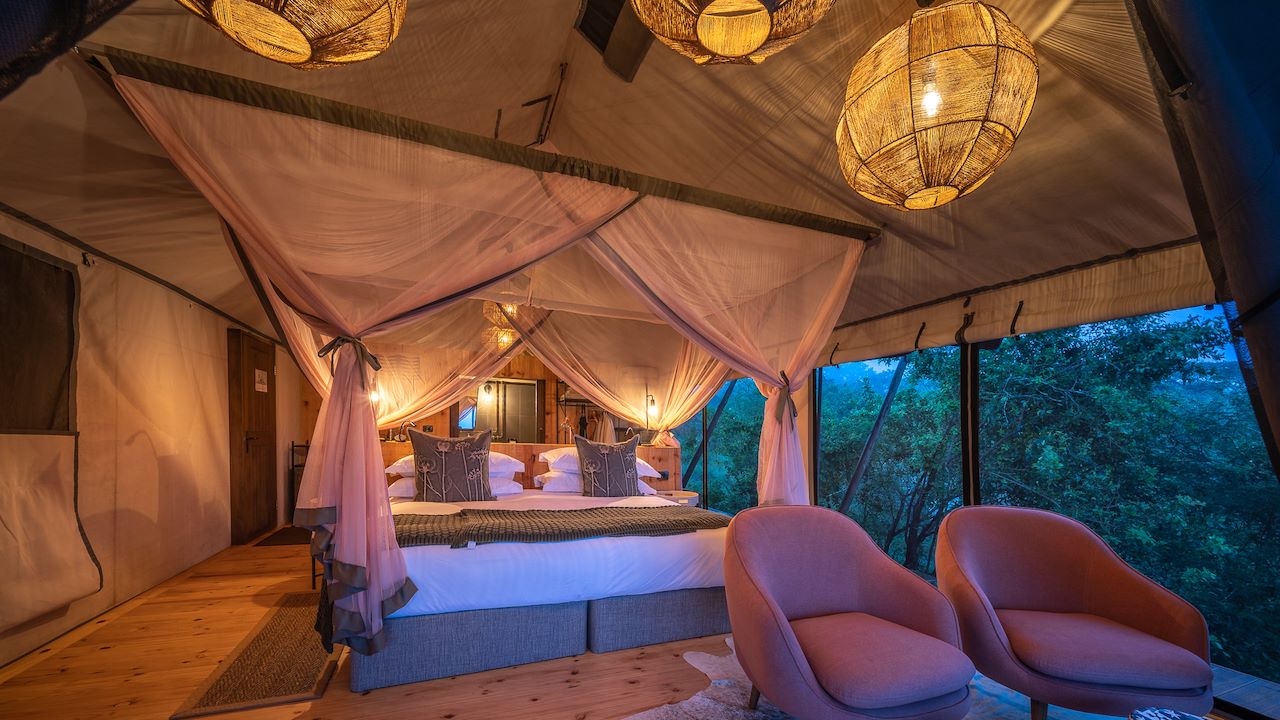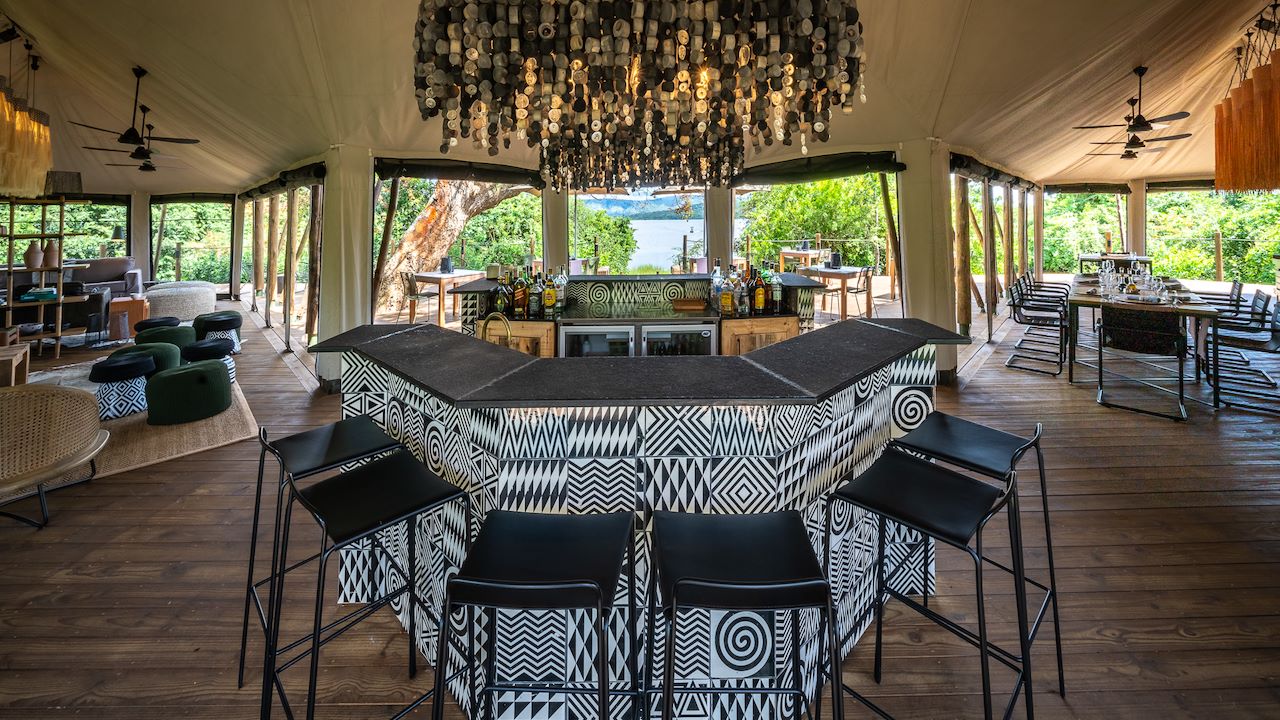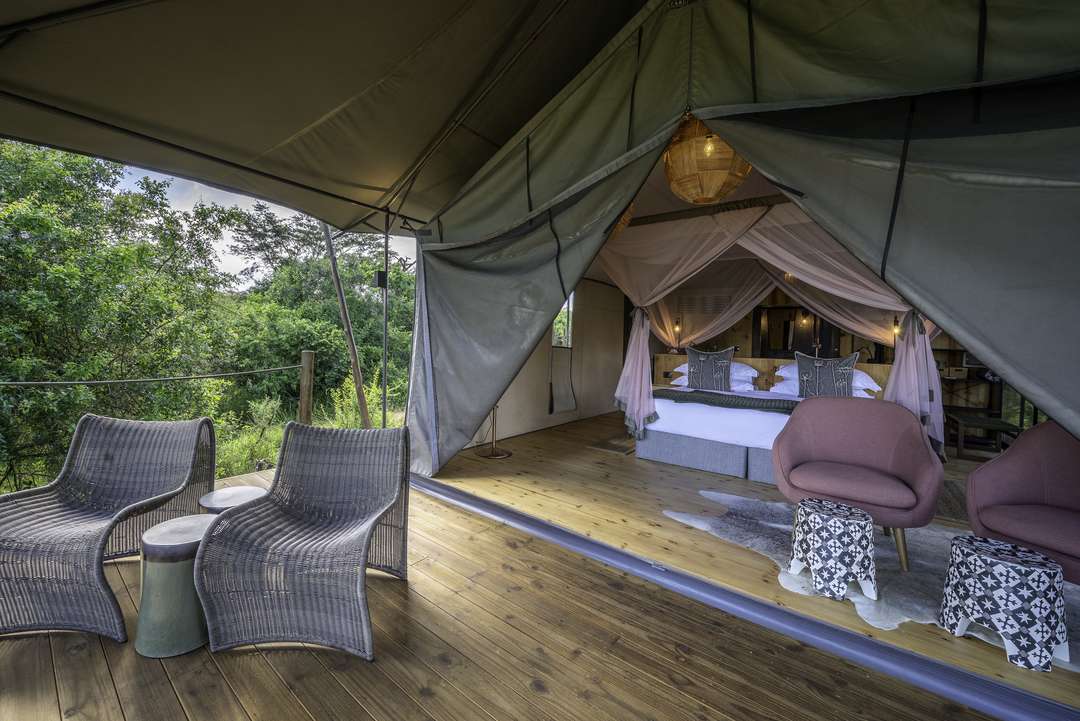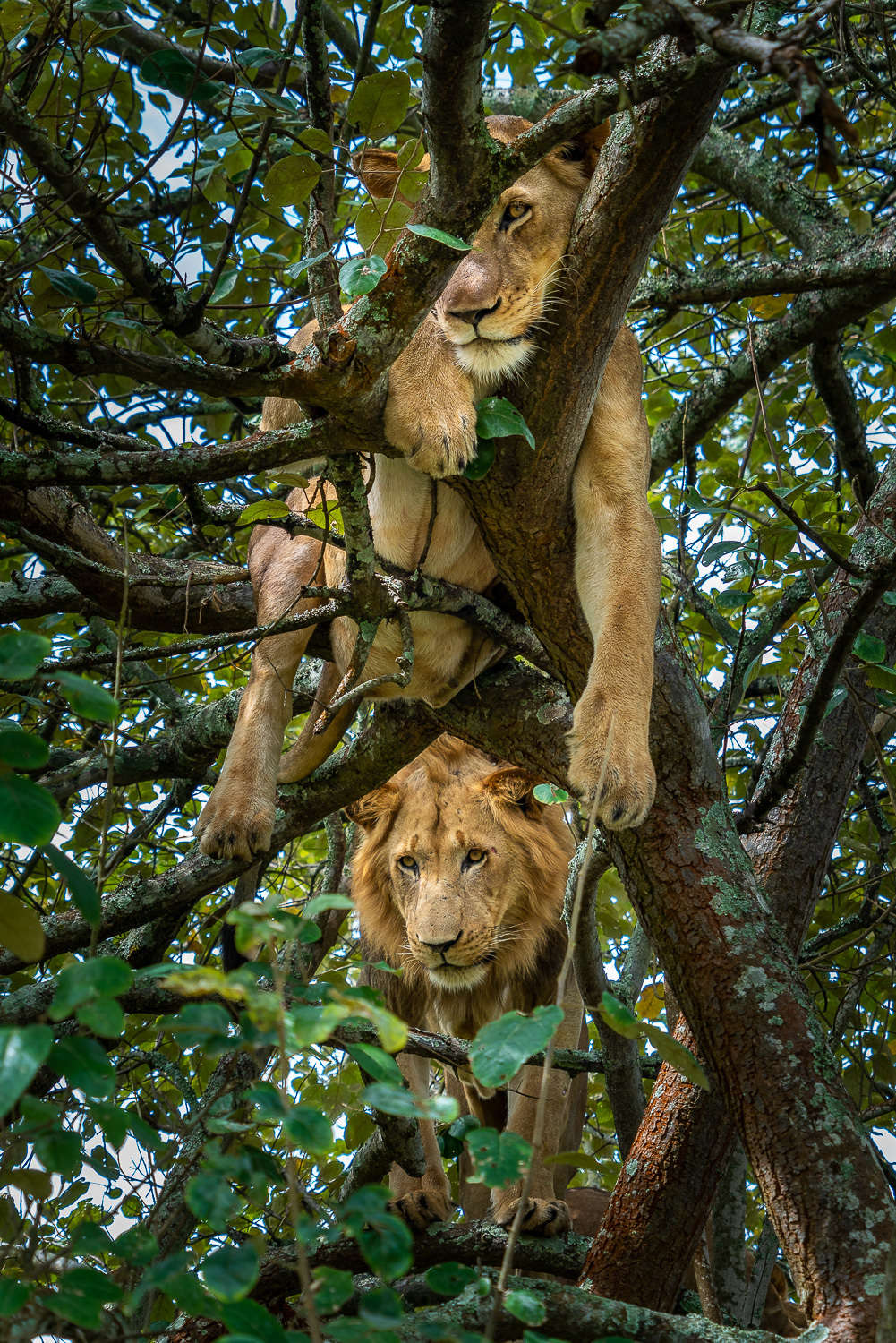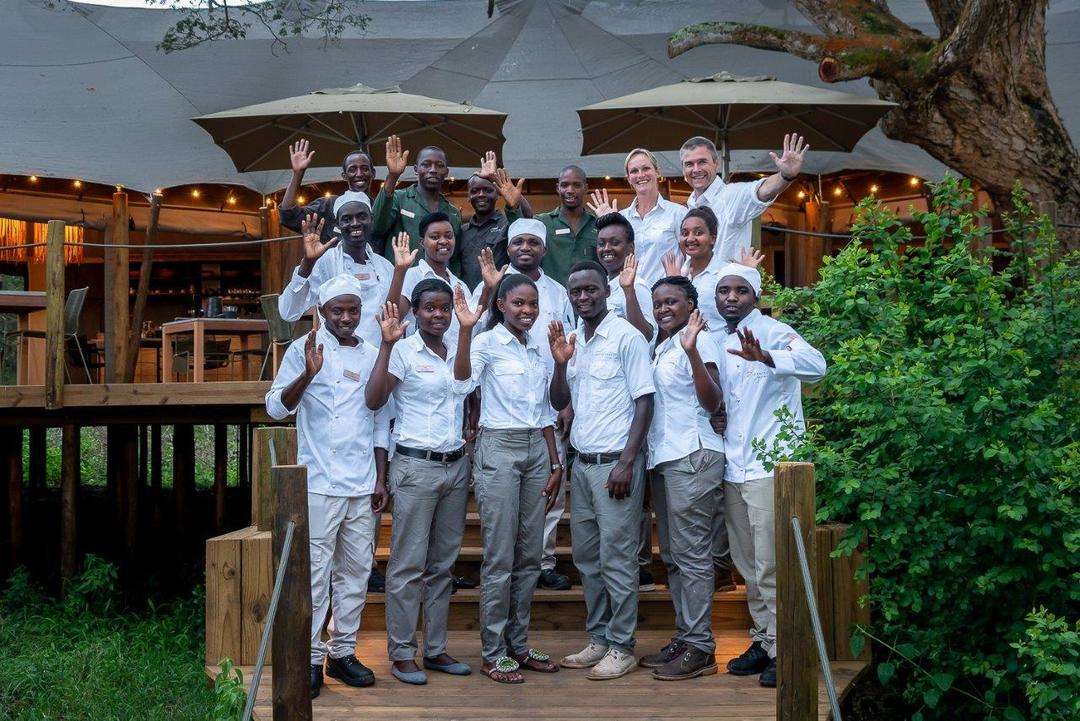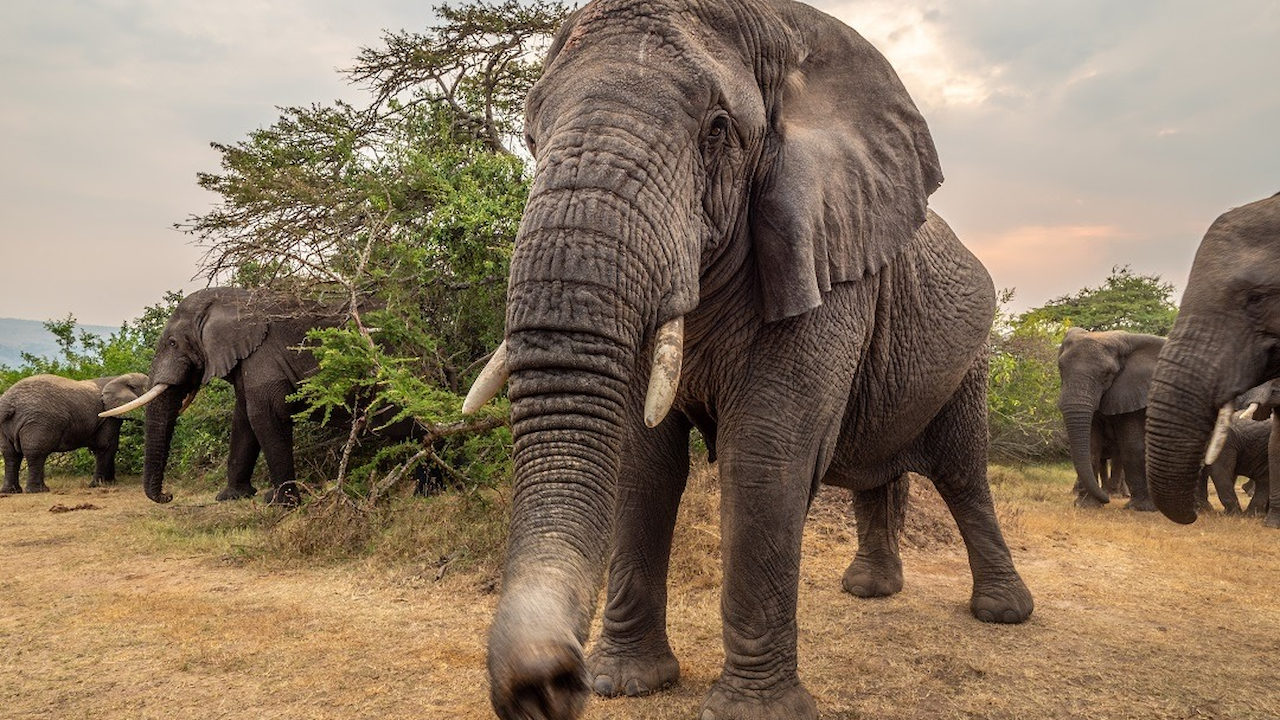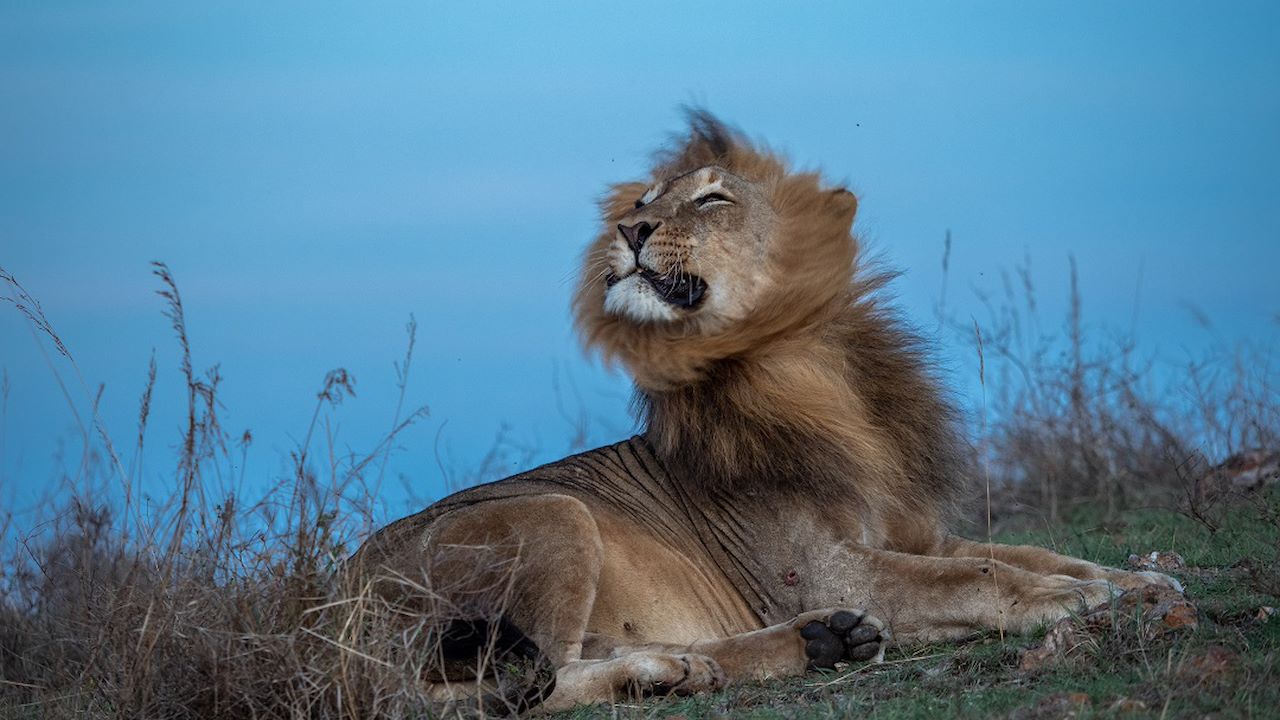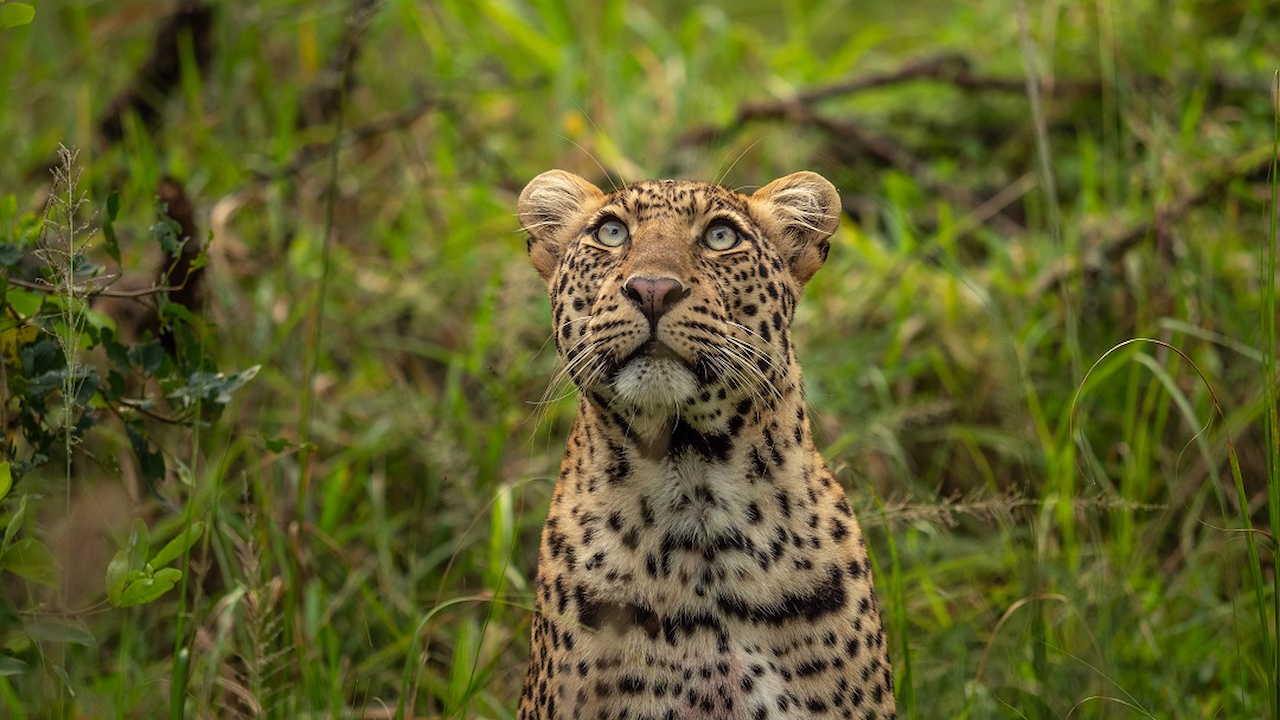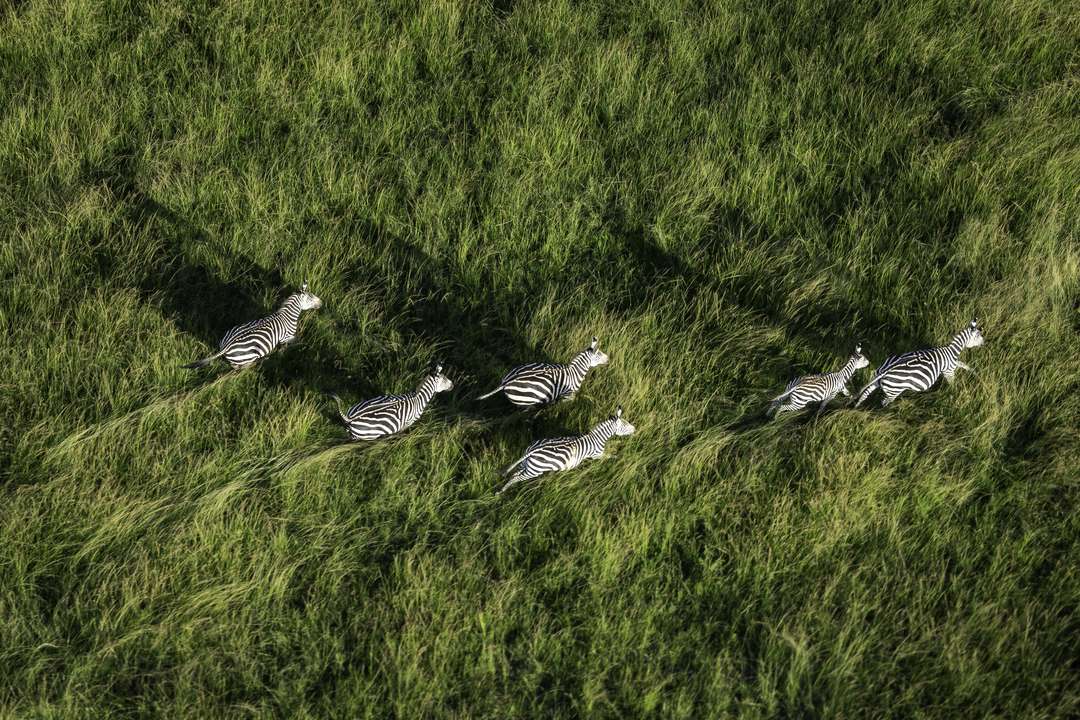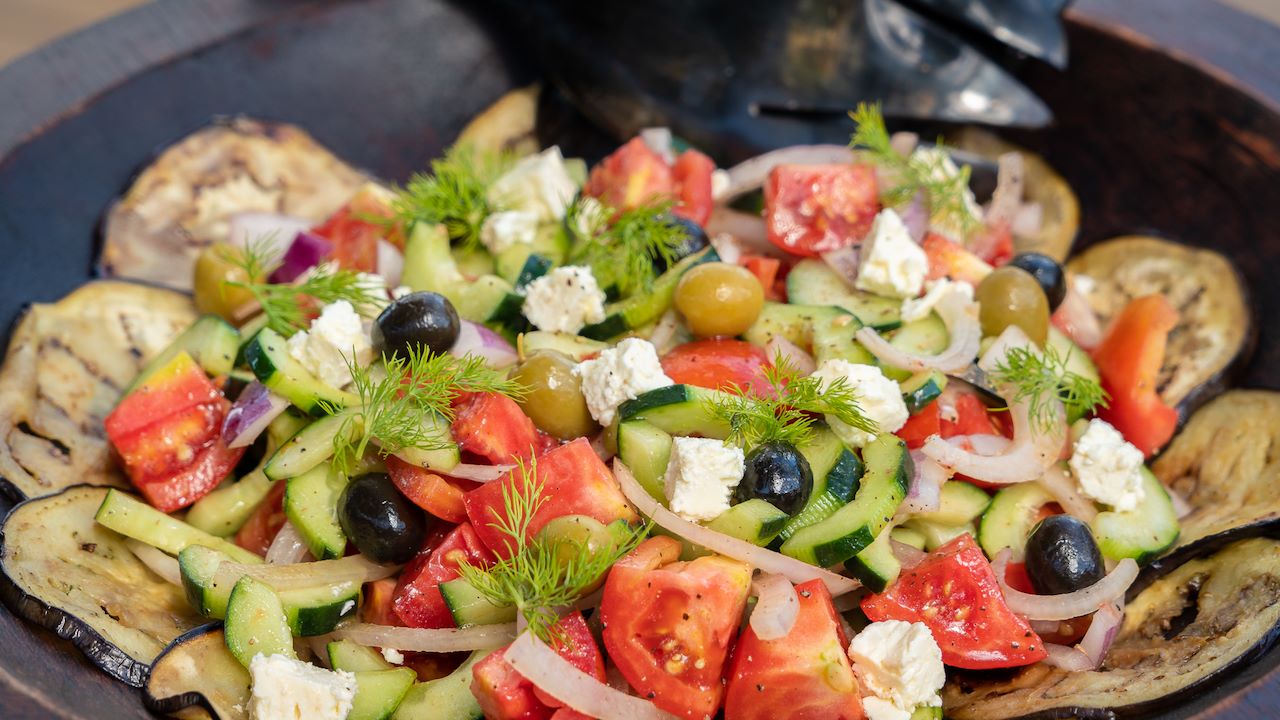‘The first time we opened the camp stands out’, says senior guide Adriaan Mulder, central to developing the Magashi wildlife experience and furthering its conservation initiatives. ‘We were guiding our first guests, and for the first time saw the lions using our concession with four brand-new cubs. Surprise and excitement filled the game drive vehicle when we realised there were cubs we’d never seen. The mother emerged from the bush, cub in her mouth and the other three in tow as they made their way to the shade – right in front of our vehicle’.
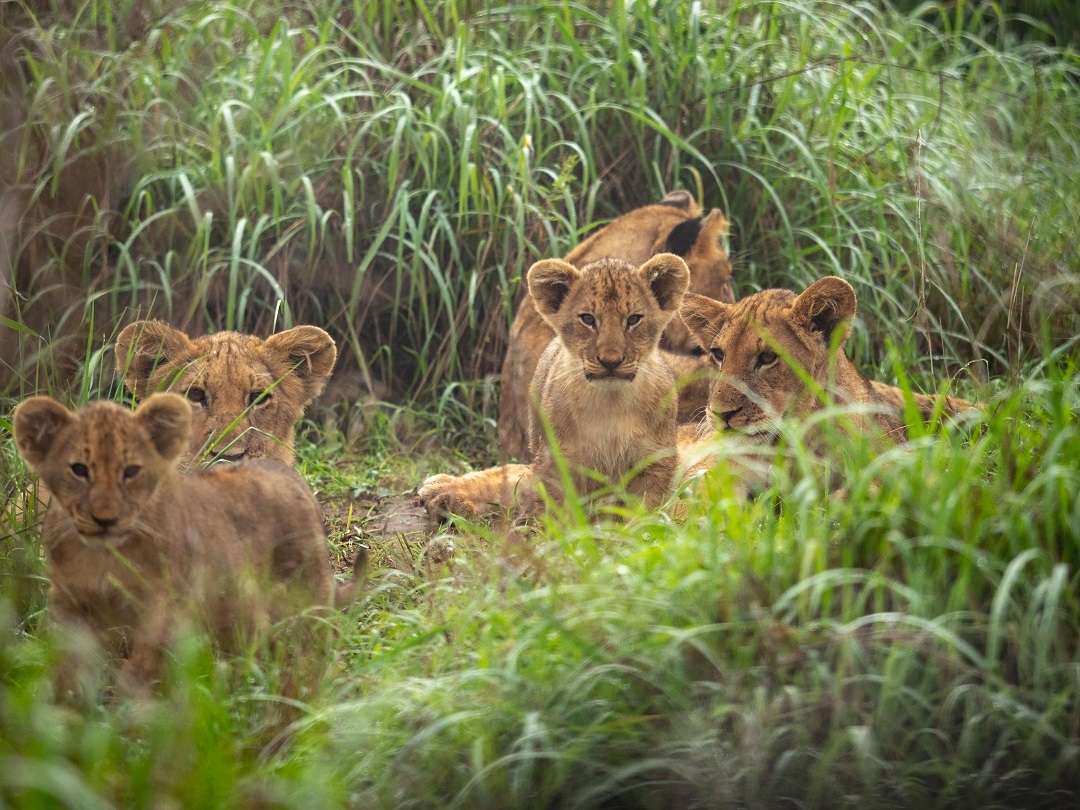
Junior guide Alphonse Ntabana describes another colourful episode at a surprise sundowner set-up (a regular ‘wow’ experience at Magashi). ‘We got surprised by a rhino, 100 metres away but coming towards us’, Alphonse says. ‘We all jumped back into the game vehicle, thinking she might crush the table down, as black rhinos can be out of sorts. But when she arrived, she sniffed the table and the drinks on it, and made a quick run of three metres to see if the table would follow her, if maybe it was something dangerous. Of course the table remained static. She came back again and spent another 15 minutes sniffing and circling it, but eventually she moved off without any harm’.
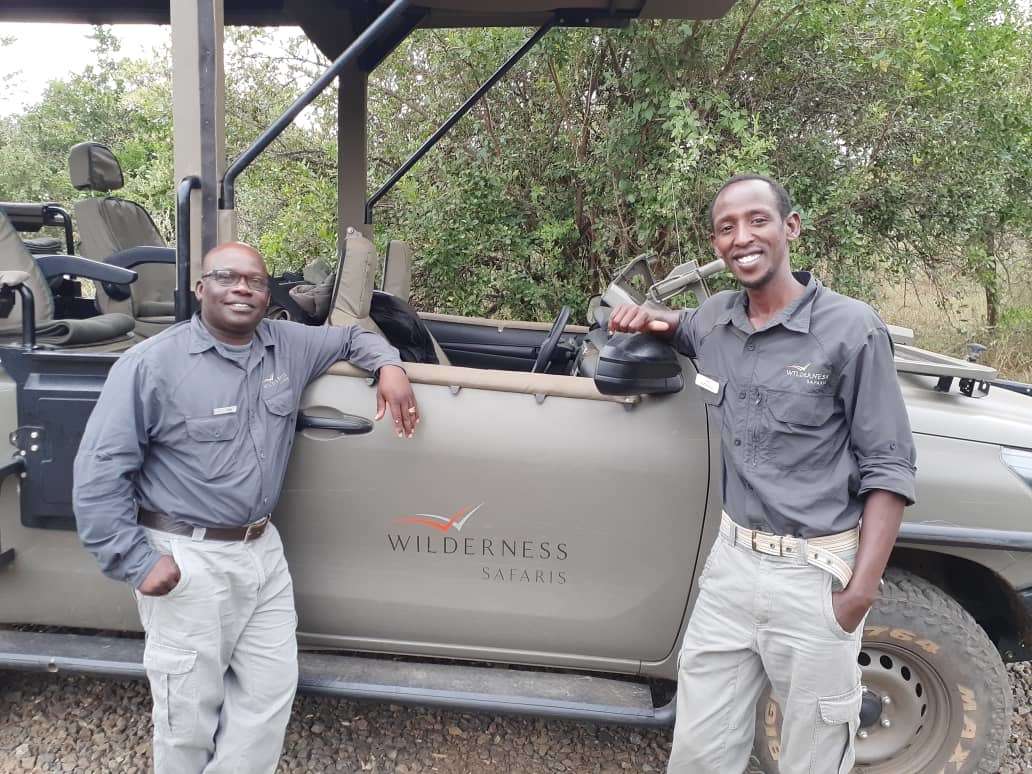
Jaco Venter, senior guide and manager, tells of his ‘short stare down’ with a leopard in an Albizia tree outside Tent Five. Manager Tataum Jackson recollects guests’ delight when youngsters in an elephant herd playfully splashed in the lake, not far from shore. Trainee guide Innocent Tuyisenge marvels how elephants ‘swim completely submerged underwater, using their trunks to breathe’, and how ‘hippos come out of the water at night to graze near the fire pit’.
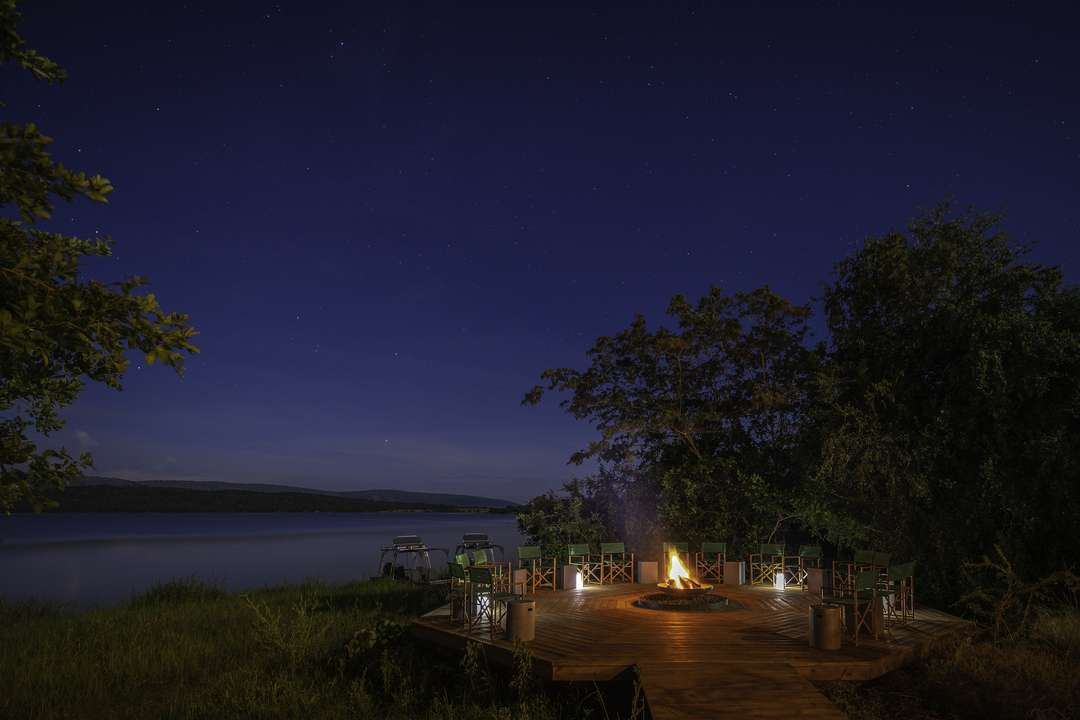
‘Up close and personal’ describes a lot of the Magashi experience, as does ‘hands-on’. Guests participate in some of Magashi’s laudable conservation projects, such as monitoring lion, black rhino, and leopard, learning some of the latest monitoring technology.
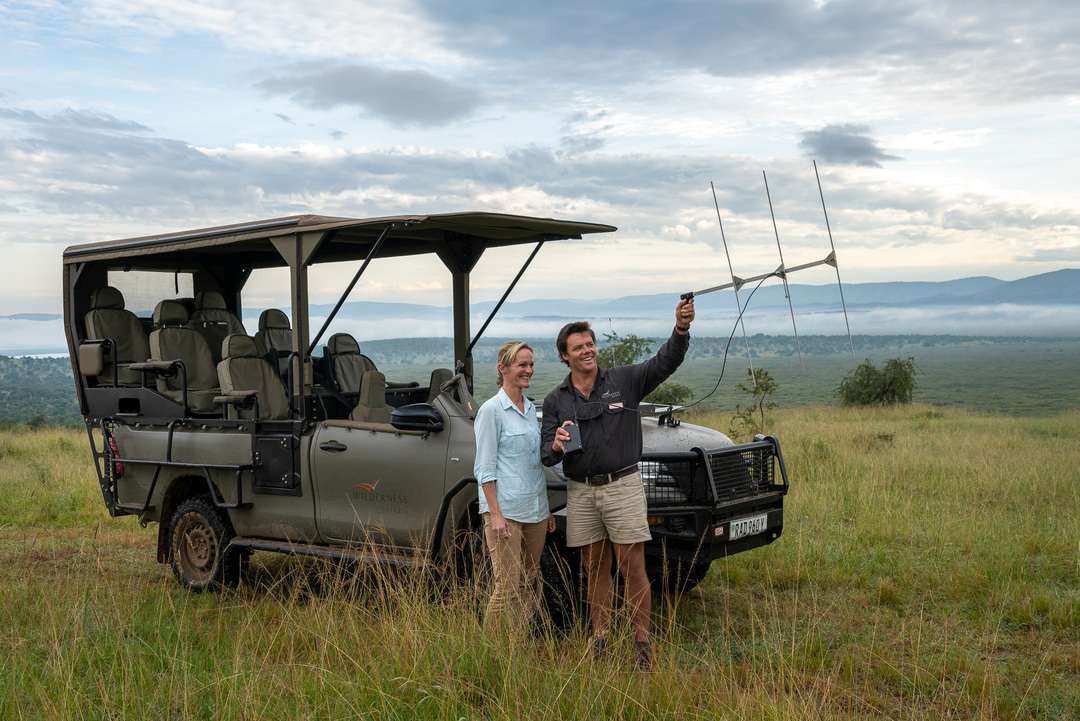
‘During safari activities, guides and guests use telemetry and GPS devices to track rhinos and lions’, says Wilderness Safaris Rwanda Managing Director Rob Baas. ‘Identity kits have been created for lion, rhino, and leopard as well – and guests can use these kits to learn more about different species. This citizen science plays an important role in enhancing our guests’ experience’. This first-hand involvement is often complemented by guest donations to support local communities’ environmental education, training conservationists for the future.
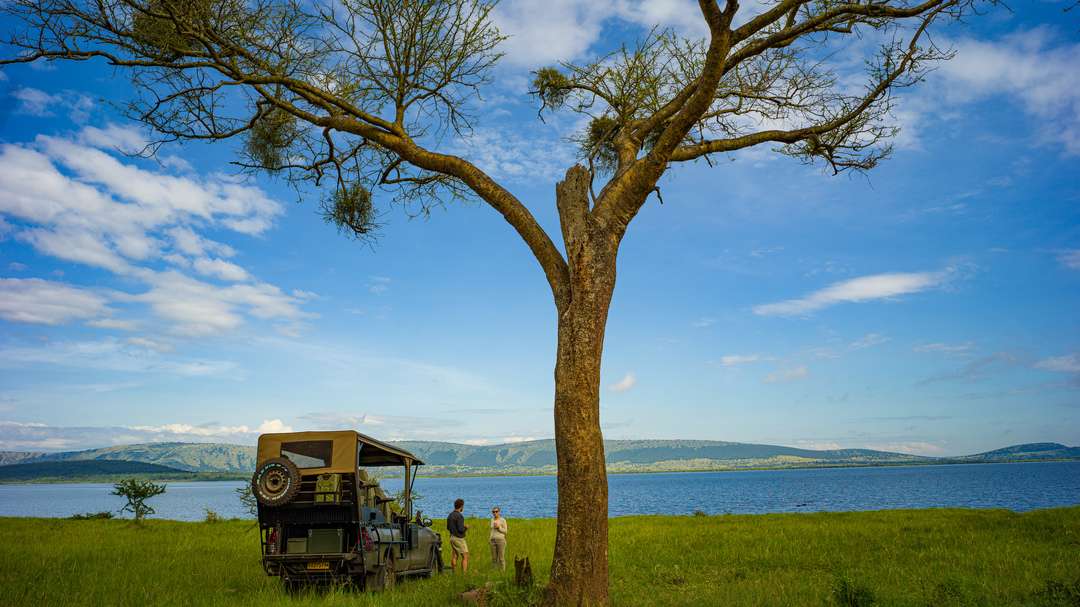
Food is also a Magashi highlight; head chef Eric Kanyemera takes great pride in serving up the freshest fare from a variety of cuisines, including Rwandan. ‘I love hosting guests who explore a variety of cuisines’, he says. ‘It helps me build up my culinary skills!’ Menus are seasonal, with lots of fresh fruit and veg, and favourites like ‘Rolexes’ (chapatis stuffed with eggs, cabbage, onion, tomato and so on); fresh tilapia from Lake Kivu and butternut croquettes; risotto made with local mushrooms; Musanze sweet potato falafel with tahini and cucumber pickle; and countless others. The camp’s signature drink, Magashi Sky, is a delicious and heady concoction.
